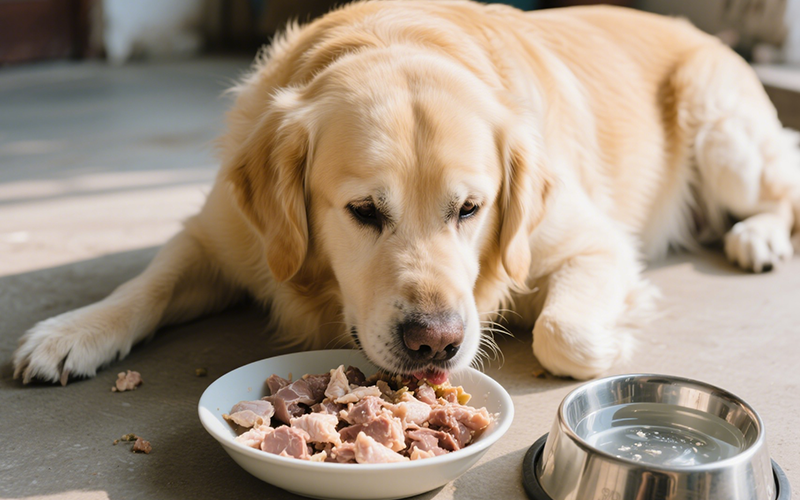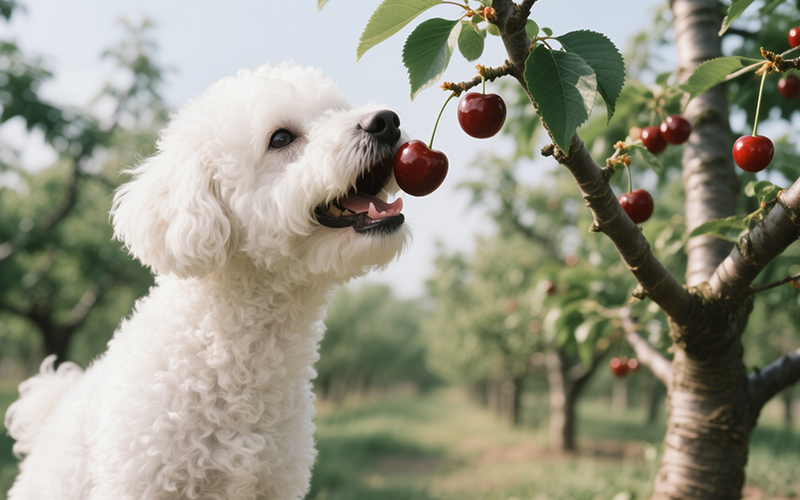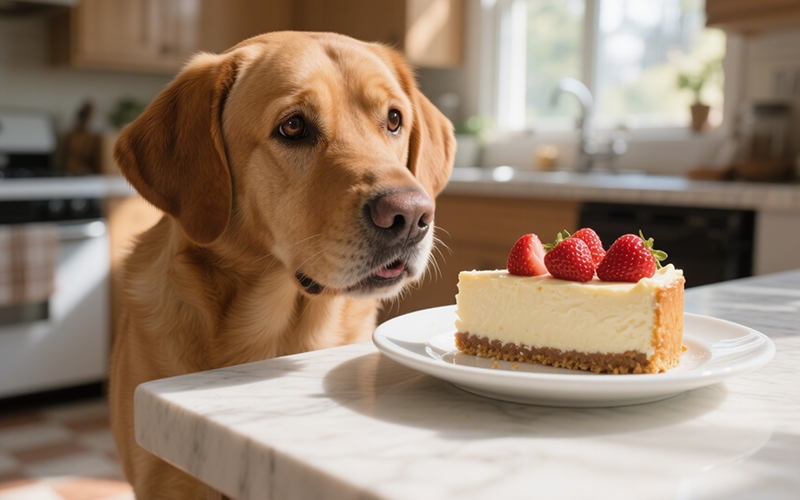Can Dogs Eat Animal Crackers? A Vet's Take on This Nostalgic Treat
- 10 May 2025 10:21
Animal crackers, those fun, animal-shaped biscuits, are a nostalgic treat for many humans. Their mild sweetness and satisfying crunch might even tempt your canine companion, leading to the question: can dogs eat animal crackers? While a single, plain animal cracker accidentally dropped and snatched up by your dog is unlikely to cause serious harm, these human treats are **generally not recommended for dogs** as a regular snack due to their nutritional makeup.
This comprehensive guide, grounded in veterinary expertise and adhering to EEAT (Expertise, Authoritativeness, Trustworthiness) principles, will explore why animal crackers aren't an ideal choice for your furry friend. We'll break down their typical ingredients, discuss potential health risks (like sugar and empty calories), consider what to do if your dog eats them, and suggest healthier, more dog-appropriate alternatives. Our goal is to provide clear, reliable information to help you make informed dietary decisions for your dog.

What's Inside an Animal Cracker? A Look at the Ingredients
Animal crackers, while varying slightly by brand (e.g., Barnum's Animals Crackers, Stauffer's Animal Crackers), generally share a common core of ingredients. Typical components often include:
Enriched Flour (Wheat Flour, Niacin, Reduced Iron, Thiamine Mononitrate, Riboflavin, Folic Acid): The primary ingredient, a processed carbohydrate.
Sugar: A significant ingredient contributing to their sweetness. This can also come in forms like high fructose corn syrup or corn syrup.
Vegetable Oil (e.g., Soybean Oil, Palm Oil, Canola Oil): Adds fat and affects texture.
Salt: For flavor.
Leavening Agents (e.g., Baking Soda, Calcium Phosphate): To help them rise and create a light texture.
Cornstarch: Often used as a thickener or anti-caking agent.
Natural and Artificial Flavors: To enhance taste.
Soy Lecithin: An emulsifier.
Some varieties might also include trace amounts of milk or other flavorings. The key takeaways from this list, from a canine health perspective, are the high proportion of refined flour and sugar, along with added fats and sodium.
Are Animal Crackers Toxic or Just Unhealthy for Dogs?
Let's be clear: **plain animal crackers (those without chocolate coating, xylitol, or other known toxins) are not acutely toxic to dogs.** If your dog eats one or two, it's unlikely to result in a veterinary emergency, assuming they don't have specific allergies to the ingredients.
However, while not poisonous, animal crackers are **decidedly unhealthy for dogs.** They offer virtually no beneficial nutrients for a canine's specific dietary needs and are essentially "empty calories." Regular consumption, or even a moderate amount in one sitting, can contribute to various health issues over time.
There are also versions of animal crackers that *are* dangerous. For example:
Chocolate-Coated Animal Crackers: Chocolate contains theobromine, which is toxic to dogs.
Sugar-Free Animal Crackers: If these contain **XYLITOL**, they are **extremely dangerous and potentially fatal** to dogs. Xylitol causes a rapid release of insulin, leading to hypoglycemia (low blood sugar), seizures, liver failure, and death. **ALWAYS check labels of any sugar-free product.**
This guide focuses on plain, traditional animal crackers. When considering "can dogs eat animal crackers?", the answer for plain varieties is "not toxic, but not good," and for certain coated or sugar-free versions, it's a resounding "NO, DANGEROUS!"
Specific Health Risks of Feeding Animal Crackers to Dogs
Giving plain animal crackers to your dog, even as an occasional treat, can lead to or exacerbate several health concerns:
High Sugar Content: This is a primary concern.
Digestive Upset: A sudden influx of sugar can disrupt a dog's digestive system, leading to vomiting, diarrhea, and gas. Sugar can also negatively alter the gut microbiome.
Weight Gain and Obesity: Animal crackers are dense with sugar and refined carbohydrates, contributing empty calories. Regular consumption can easily lead to weight gain, increasing the risk of arthritis, diabetes, heart disease, respiratory problems, and a shorter lifespan.
Dental Problems: Sugar feeds harmful bacteria in a dog's mouth, contributing to plaque, tartar buildup, gum disease, and tooth decay over time.
Blood Sugar Spikes: The simple carbohydrates and sugars cause a rapid rise in blood glucose levels. This is particularly concerning for dogs with diabetes or those predisposed to it. Over time, frequent sugar spikes can contribute to insulin resistance.
Refined Flour (Empty Carbohydrates):
The enriched wheat flour offers little nutritional value for dogs, who thrive on diets rich in animal protein and healthy fats.
It's a source of simple carbohydrates that provide quick energy but lack sustained nutritional benefits.
Low Nutritional Value:
Animal crackers lack the essential proteins, fats, vitamins, and minerals that dogs require in their diet.
Feeding them as treats can displace calories that should come from their balanced, species-appropriate dog food, potentially leading to nutritional deficiencies if given frequently.
Potential for Allergies or Sensitivities:
Wheat is a common food allergen in dogs. If your dog has a wheat allergy or gluten sensitivity, animal crackers will trigger adverse reactions like skin itching, rashes, ear infections, or gastrointestinal issues.
Some dogs might also be sensitive to other ingredients like soy (from soy lecithin or soybean oil) or artificial flavors.
Added Fats and Sodium:
While not excessively high compared to some treats, the added vegetable oils contribute to the calorie count and fat intake. High-fat treats can sometimes trigger pancreatitis in susceptible dogs.
The sodium content, though usually not extreme in animal crackers, is still an unnecessary addition to a dog's diet.
Choking Hazard (Minor Risk):
For very small dogs or puppies, or dogs that tend to gulp their food, the small, hard crackers could potentially pose a minor choking risk if not chewed properly, though this is less common than with other types of treats.
What if My Dog Ate Animal Crackers?
If your dog has managed to sneak some plain animal crackers, here's how to respond:
Stay Calm: For plain animal crackers, a small amount is usually not an emergency.
Assess the Situation:
How many crackers do you think were eaten?
Were they plain, or did they have any coatings (like chocolate) or sweeteners (check for xylitol if sugar-free)? **If xylitol or chocolate is involved, contact your vet or Pet Poison Helpline immediately – this is an emergency.**
Note your dog's size, age, and general health status.
Monitor Your Dog: For the next 12-24 hours, watch for any signs of illness, especially:
Vomiting
Diarrhea
Lethargy
Loss of appetite
Excessive gas
Abdominal discomfort
Provide Fresh Water: Ensure your dog has access to plenty of fresh water.
When to Call the Veterinarian:
**If you suspect xylitol or chocolate ingestion – call IMMEDIATELY.**
If your dog ate a very large quantity of plain animal crackers, especially if they are a small dog.
If your dog shows any signs of illness listed above, particularly if vomiting or diarrhea is persistent or severe.
If your dog has pre-existing health conditions like diabetes, pancreatitis, or known food allergies (especially to wheat).
If you are worried for any reason. It's always better to seek professional advice.
For a healthy, larger dog that ate one or two plain animal crackers, mild, transient digestive upset is the most likely outcome, if any symptoms occur at all.
Healthier Treat Alternatives for Your Canine Companion
Instead of offering sugary, low-nutrient human snacks like animal crackers, choose treats that are either beneficial or at least not detrimental to your dog's health. Remember the 10% rule: treats should make up no more than 10% of your dog's total daily caloric intake.
Good alternatives include:
Dog-Specific Biscuits and Treats: Opt for high-quality commercial treats formulated for dogs. Look for those with limited, recognizable ingredients and avoid excessive fillers, artificial colors, and flavors.
Small Pieces of Plain, Cooked Lean Meat: Chicken, turkey, or lean beef (no bones, skin, seasoning, or oils).
Certain Fruits (in moderation, check for safety first):
Apple slices (no core or seeds)
Blueberries
Banana slices
Watermelon (seedless flesh only, no rind)
Plain Strawberries (tiny amounts)
Certain Vegetables (raw or plain cooked):
Carrot sticks or baby carrots (good for teeth too)
Green beans (plain)
Cucumber slices
Plain cooked sweet potato (in small amounts)
Plain Zucchini slices
Freeze-Dried Meat Treats: Single-ingredient options like liver, chicken, or salmon are often excellent.
Air-Popped Popcorn (Plain, No Salt or Butter): A few pieces can be a low-calorie, crunchy treat.
Table: Animal Crackers vs. Dog-Friendly Treats
This comparison highlights the differences:
| Feature | Animal Crackers (Plain, Human Treat) | Healthy Dog-Specific Treats / Safe Human Food Alternatives |
| Nutritional Value for Dogs | Very Low (Empty Calories from Sugar/Flour) | Can provide beneficial nutrients (protein, vitamins, minerals, fiber) |
| Sugar Content | High | Low to None (or natural sugars in moderation from fruits/veg) |
| Primary Ingredients | Refined Flour, Sugar | Often Meat, Whole Grains (in some dog biscuits), Fruits, Vegetables |
| Risk of GI Upset | Moderate to High (from sugar, processed ingredients) | Low (if introduced properly and appropriate for dogs) |
| Contribution to Long-Term Health Issues (Obesity, Dental Problems, Diabetes Risk) | High (with regular consumption) | Low (if part of a balanced diet and treats given in moderation) |
| Special Warning | Avoid chocolate-coated or XYLITOL-containing versions AT ALL COSTS. | Always check for Xylitol in peanut butter or baked goods if sharing. |
| Addressing "can dogs eat animal crackers"? | Generally Unsuitable and Unhealthy. | Clearly Preferable and Safer. |
The Veterinary Perspective: A Thumbs Down for Sugary Snacks
Veterinarians consistently advise against feeding dogs sugary human treats like animal crackers. Their reasoning includes:
Lack of Nutritional Benefit: They offer nothing dogs need and can detract from a balanced diet.
Obesity Crisis: Vets frequently deal with overweight and obese pets, and high-calorie, low-nutrient treats are a major contributor.
Dental Health: Sugar promotes dental disease, a common and often painful condition in dogs.
Risk of Pancreatitis or GI Upset: Sudden ingestion of sugary or fatty foods can trigger these issues.
Potential for Toxic Ingredients: The risk of accidentally feeding a version with chocolate or xylitol is always a concern with human candies/cookies.
While a vet might not panic if a dog ate one plain animal cracker, they will strongly recommend against making it a habit and will advocate for healthier, dog-specific treat options.
Need Quick Pet Health Info? PettureX Can Help
When your dog eats something they shouldn't, or if you have urgent questions about their health, having a quick information resource can be beneficial while you seek professional veterinary care.
The PettureX app is an AI-powered tool designed for pet owners:
Image Recognition: Useful if your dog ingests an unknown item (always confirm with a vet or poison control for definitive identification of toxins or dangerous items).
Pet Health Analysis via Image: Upload images of symptoms for preliminary AI insights (this is not a diagnostic tool).
24/7 AI Vet Consultation: Get instant AI-driven responses to urgent questions like, "My dog ate a box of animal crackers, what should I do?" This can provide immediate guidance on assessing risk and determining next steps while you contact your veterinarian or a pet poison helpline.
Remember, tools like PettureX are designed to supplement, not replace, professional veterinary care. Always consult your vet for your pet's specific health needs.
Conclusion: Animal Crackers Are Best Left for Human Nostalgia, Not Canine Treats
To definitively answer "can dogs eat animal crackers?" – while plain versions are not acutely toxic, they are an **unhealthy and unsuitable treat for dogs.** They are high in sugar and refined carbohydrates, offer no nutritional value, and can contribute to various health problems if fed regularly or in large amounts.
Key Takeaways:
Plain animal crackers are not poisonous but are unhealthy due to high sugar and low nutritional value.
**NEVER feed dogs chocolate-coated animal crackers or any sugar-free versions that might contain XYLITOL.**
Risks of plain animal crackers include digestive upset, weight gain, dental issues, and blood sugar spikes.
If your dog eats a few plain animal crackers, monitor them for any adverse signs. Contact your vet if a large amount is eaten or if symptoms occur.
Opt for healthier, species-appropriate treats like plain cooked meats, certain fruits and vegetables, or high-quality commercial dog treats.
Protect your dog's health and well-being by choosing treats that are specifically designed for them or are known to be safe and beneficial. Keep human snacks like animal crackers for yourself and provide your canine companion with nutritious options that support their overall health.
Related

Can Dogs Eat Cooked Carrots? A Crunchy & Colorful Canine Query!
- 29 May 2025
Can Dogs Eat Cooked Cabbage? Unveiling the Crunchy Truth for Your Canine!
- 29 May 2025
Can Dogs Eat Citrus? Peeling Back the Zesty Truth for Your Pup!
- 28 May 2025
Can Dogs Eat Cinnamon Applesauce (A Little Bit)? The Sweet and Spicy Truth!
- 28 May 2025
Can Dogs Eat Chorizo? Sizzling a Warning for Your Furry Friend!
- 27 May 2025
Can Dogs Eat Chili? A Spicy Topic for Canine Consumption!
- 27 May 2025
Can Dogs Eat Raw Chicken? Unveiling the Risks and Realities
- 26 May 2025
Can Dogs Eat Chicken Gizzards? A Gut Feeling About This Meaty Morsel!
- 26 May 2025
Can Dogs Eat Cherries? The Pit-falls and Perks of This Summer Fruit!
- 24 May 2025
Can Dogs Eat Cheesecake? A Sweet Treat or a Recipe for Trouble?
- 24 May 2025
